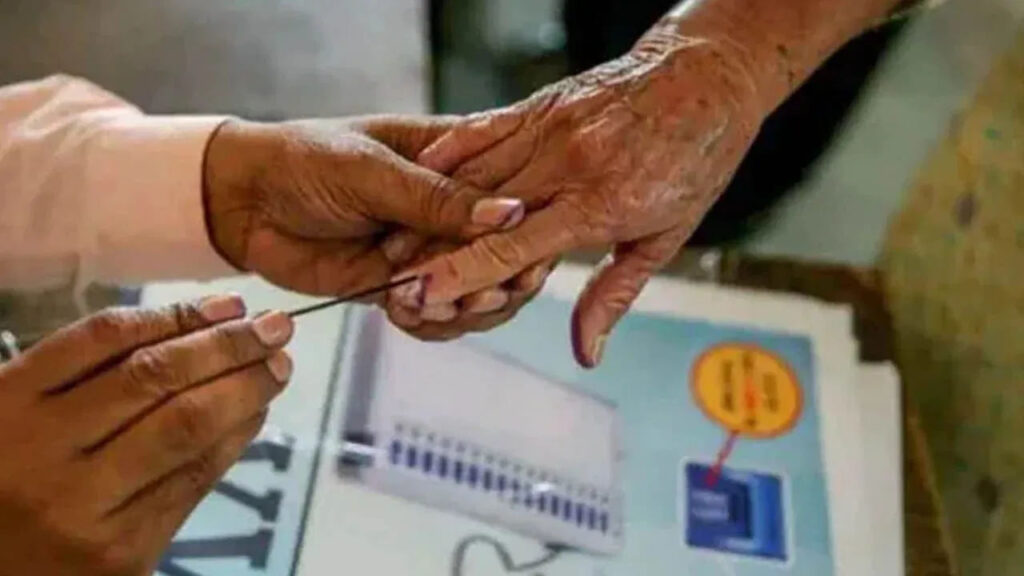The Jammu and Kashmir Assembly has reserved 9 seats for Scheduled Tribe (ST) candidates, marking a significant shift in the political landscape of the region. In February this year, the Lok Sabha passed the Jammu and Kashmir Scheduled Tribes Order (Amendment) Bill, 2024, which added the Gadha Brahmin, Koli, Podhro, and Pahari tribes to the ST list. However, this move has stirred unrest among the Gujjar and Bakarwal communities, who have expressed their disapproval of excluding them and have ramped up their protests since the announcement of election dates.
According to the Election Commission, any candidate who presents a valid ST certificate during the nomination scrutiny can contest from the ST reserved seats. The All J&K Gujjar-Bakarwal Coordination Committee has reached out to the Election Commission on this matter, urging the central government to clarify that the reserved seats should exclusively be for the Gujjar and Bakarwal communities.
Arguments Presented by the Committee
The committee argues that the delimitation commission, which was active in 2022, identified these nine constituencies based on the 2011 census without considering the groups that were added to the ST list in 2024. Anwar Chaudhary, the convenor of the Gujjar-Bakarwal Committee, stated in a press conference held in Jammu that only Gujjars and Bakarwals should have the right to contest elections in these nine seats, excluding anyone from the general category or any new group included in 2024.
Historical Context of Reservation in Jammu and Kashmir
Since the 1990s, reservations have been in effect in Jammu and Kashmir for government jobs and educational institutions, benefitting the Gujjar and Bakarwal communities. This marks the first time that seats in the Jammu and Kashmir Assembly will be reserved for the ST category. Following the abrogation of Article 370 in August 2019 and the delimitation of assembly constituencies in 2022, nine seats were designated for ST candidates, with six located in the Jammu province and three in Kashmir.
In February, Parliament passed an amendment to include the Pahari, Podhro, Koli, and Gadha Brahmin groups in the Jammu and Kashmir ST list. These groups are set to receive a 10% reservation in addition to the existing 10% quota allocated to the current ST communities for jobs and educational institutions. However, no clear directives have emerged regarding political reservations for ST candidates.
Emergence of Opposition Among Communities
The inclusion of new groups has led to dissent among the Gujjar and Bakarwal communities, raising concerns that their anticipated political advantages could diminish. Shafiq Mir, a former chairman of the Bafliyaz Block Development Council, pointed out that allowing ST reservations for the Pahari people essentially means that there will be no quotas for the five ST seats emerging from Poonch and Rajouri border districts, as everyone would be included in the ST list. Historically, Gujjar-Bakarwals and Paharis have never voted for the same candidate in these districts during elections.
Pahari Community’s Long-standing Demands
The Pahari community in Jammu and Kashmir has been advocating for ST status for a long time, claiming that they reside in remote and underdeveloped regions such as Pir Panjal, beyond just the Baramulla and Anantnag districts. Meanwhile, the Gujjar and Bakarwal communities argue that the Pahari community is not a single caste but rather a diverse group comprising various religious and linguistic communities. The Pahari community holds significant influence in multiple assembly seats across Jammu and Kashmir, particularly in Rajouri, Handwara, Poonch, and Baramulla.
It is essential to note that the Gujjars and Bakarwals are primarily from the Muslim community, while the Pahari community represents both Hindus and Muslims. Approximately 40% of the population in the border districts is Pahari. Furthermore, the Gujjar and Bakarwal communities have been recognized as Scheduled Tribes since April 1991 in Jammu and Kashmir.
Future Implications
The current situation presents a complex scenario as the election approaches, with disputes over voting rights in ST reserved constituencies likely to play a crucial role in the electoral outcomes. The electoral dynamics between the communities, along with their historical claims and political aspirations, necessitate careful consideration by policymakers and voters alike to foster harmony and ensure equitable representation.
